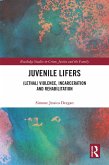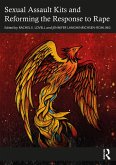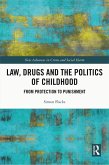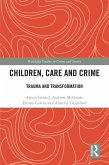The tough issues involved in sentencing youths who take the lives of others, often deliberately and in horrific ways, are confronted through chapters addressing the legal issues, child development factors, risk assessment, public attitudes, and ethical concerns. The volume brings together research specifically conducted for this volume, in addition to summaries and discussions of clinical and empirical findings. Each chapter ends with key takeaway points. Contributors include psychologists, psychiatrists, criminologists, sociologists, lawyers, economists, biologists, epidemiologists, and public health and public policy experts. Uniquely, they examine murder by juveniles across the globe. The volume includes research pertaining to the causes, correlates, and theoretical explanations of juvenile homicide offending. Moving beyond discussions of juvenile homicide offenders (JHOs) as a homogenous group, the volume includes research on specific types of JHOs and research investigating age and gender differences among JHOs. In addition, it draws attention to the empirical factors associated with juvenile homicide offending, effective treatment of JHOs, recidivism, and prevention of violent behavior. The volume also makes recommendations for policy and practice, including how to shift government policy from punishing lawbreakers to saving lives.
This volume is essential reading for scholars and students researching youth violence/juvenile homicide across a variety of disciplines including criminology, criminal justice, law, psychology, psychiatry, sociology, social work, public health, and education. It is also an invaluable reference for mental health professionals, practitioners in the juvenile and criminal justice systems, policymakers, and government leaders.
Dieser Download kann aus rechtlichen Gründen nur mit Rechnungsadresse in A, B, BG, CY, CZ, D, DK, EW, E, FIN, F, GR, HR, H, IRL, I, LT, L, LR, M, NL, PL, P, R, S, SLO, SK ausgeliefert werden.









